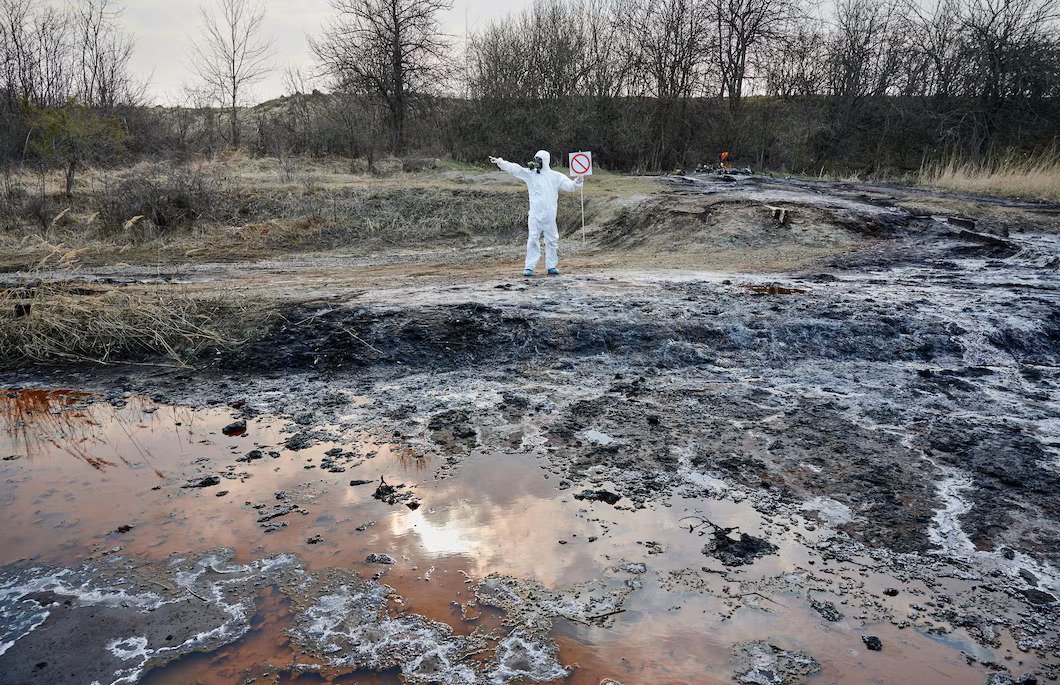The naturally occurring clay bentonite which mainly consists of montmorillonite has become very popular because it serves multiple industrial purposes including construction work, agricultural uses, cosmetic production and environmental cleanup tasks. Growing bentonite consumption has brought attention to its environmental consequences. Is bentonite harmful to the environment? The blog investigates bentonite’s ecological effects while examining its advantages and risks alongside methods for sustainable environmental management.
What is Bentonite?
Volcanic ash transforms into bentonite which is an absorbent clay composed of aluminum phyllosilicate. Bentonite stands out because of its swelling capacity combined with both high cation exchange capacity and strong adsorption capabilities. Its properties render bentonite a crucial resource across multiple sectors.
Bentonite finds applications in drilling fluids and foundry sand binders while also being used in cat litter production and skincare products.
The environmental effects of bentonite stem from its extraction methods as well as its processing and usage techniques. We need to investigate both the advantages and disadvantages that come with the use of bentonite.
Environmental Benefits of Bentonite
1. Soil Improvement and Agricultural Benefits
Bentonite clay is widely used in agriculture to improve soil quality. It enhances water retention in sandy soils and reduces nutrient leaching, making it an excellent amendment for farming. For example, sulphur bentonite fertilizer is a popular choice among farmers to boost crop yields while improving soil health. Learn more about its benefits in our detailed guide on Sulphur Bentonite Fertilizer.
2. Environmental Remediation
Bentonite is used in environmental cleanup projects to absorb heavy metals and toxins from contaminated soil and water. Its high adsorption capacity makes it an effective barrier in landfills to prevent leachate from contaminating groundwater.
3. Sustainable Construction
In construction, bentonite is used as a sealant in foundations and tunnels. Its ability to swell and form a waterproof barrier makes it an eco-friendly alternative to synthetic materials.
Potential Environmental Risks of Bentonite
While bentonite offers numerous benefits, its extraction, processing, and improper disposal can pose environmental risks. Here are some concerns:
1. Mining and Land Degradation
Bentonite is extracted through open-pit mining, which can lead to habitat destruction, soil erosion, and landscape alteration. Mining activities may also disrupt local ecosystems and biodiversity.
2. Water Contamination
Although bentonite is non-toxic, its fine particles can cause turbidity in water bodies if not managed properly. This can affect aquatic life by reducing light penetration and oxygen levels.
3. Energy-Intensive Processing
The processing of bentonite into usable forms, such as granules or powder, requires significant energy. This contributes to carbon emissions and environmental pollution. For insights into the manufacturing process, check out our guide on Bentonite Granules Manufacturing Process.
4. Improper Disposal
Disposing of bentonite waste improperly can lead to soil and water contamination. For instance, used bentonite from drilling operations must be treated before disposal to prevent environmental harm.
Is Bentonite Toxic to Humans and Animals?
Bentonite is generally considered safe for humans and animals. It is even used in skincare and wellness products due to its detoxifying properties. However, prolonged exposure to bentonite dust during mining or processing can cause respiratory issues. Proper safety measures, such as wearing masks and using dust suppression systems, are essential to minimize health risks.
For more information on the safety and shelf life of bentonite, read our article on Does Bentonite Clay Expire?.
Sustainable Practices to Minimize Environmental Impact
To ensure that bentonite remains an eco-friendly resource, the following sustainable practices should be adopted:
1. Responsible Mining
Implementing eco-friendly mining techniques, such as land reclamation and habitat restoration, can mitigate the environmental impact of bentonite extraction.
2. Efficient Processing
Using energy-efficient technologies and renewable energy sources in bentonite processing can reduce carbon emissions.
3. Proper Waste Management
Treating and recycling bentonite waste can prevent soil and water contamination. For example, used bentonite from drilling operations can be reprocessed and reused.
4. Promoting Organic Farming
Encouraging the use of bentonite in organic farming can enhance soil health and reduce the need for chemical fertilizers. Discover how bentonite clay benefits farming in our guide on Bentonite Clay for Farming.
Case Studies: Bentonite in Environmental Remediation
1. Heavy Metal Removal
A study published in PubMed highlights the use of bentonite for removing heavy metals from contaminated water. The research demonstrates its effectiveness in adsorbing toxic elements like lead and cadmium, making it a valuable tool in environmental cleanup. Read more about the study here.
2. Landfill Liners
Bentonite is widely used as a liner in landfills to prevent leachate from contaminating groundwater. Its swelling properties create an impermeable barrier, ensuring safe waste disposal.
Conclusion: Is Bentonite Harmful to the Environment?
The environmental nature of bentonite shows no intrinsic harm. The effects of bentonite change based on its extraction, processing methods and application. Environmental advantages like water purification and sustainable construction occur through bentonite when it is managed with care. Ecological damage results from irresponsible mining activities along with energy-intensive processing methods and improper disposal practices.
By adopting sustainable practices and promoting responsible usage, we can harness the benefits of bentonite while minimizing its environmental footprint. For high-quality bentonite products, consider partnering with trusted bentonite manufacturers in India.







